
Find Help
More Items From Ergsy search
-
Are there ongoing studies about aspirin and colorectal cancer?
Relevance: 100%
-

Can aspirin stop colorectal cancer?
Relevance: 94%
-
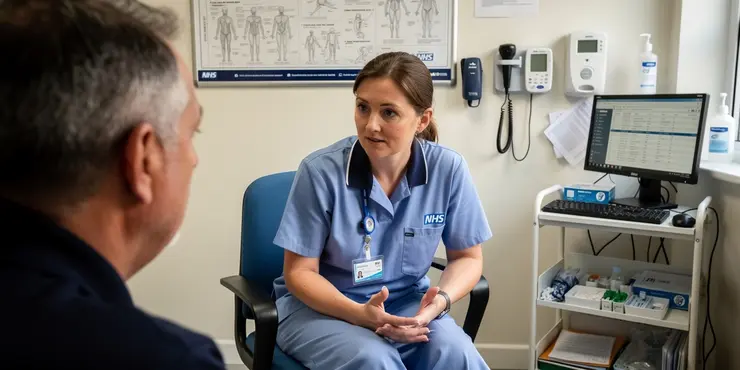
Has aspirin been proven to cure colorectal cancer?
Relevance: 90%
-

Is aspirin recommended for everyone to prevent colorectal cancer?
Relevance: 87%
-
Is aspirin more effective for certain age groups in preventing colorectal cancer?
Relevance: 82%
-

Should people with a family history of colorectal cancer take aspirin?
Relevance: 80%
-
How long do studies suggest taking aspirin for cancer prevention?
Relevance: 80%
-
Is aspirin effective in preventing other types of cancer?
Relevance: 75%
-
Has the FDA approved aspirin for cancer prevention?
Relevance: 69%
-

How does aspirin work to reduce cancer risk?
Relevance: 69%
-

What do health organizations say about aspirin and cancer prevention?
Relevance: 65%
-

Can aspirin prevent colorectal cancer?
Relevance: 64%
-
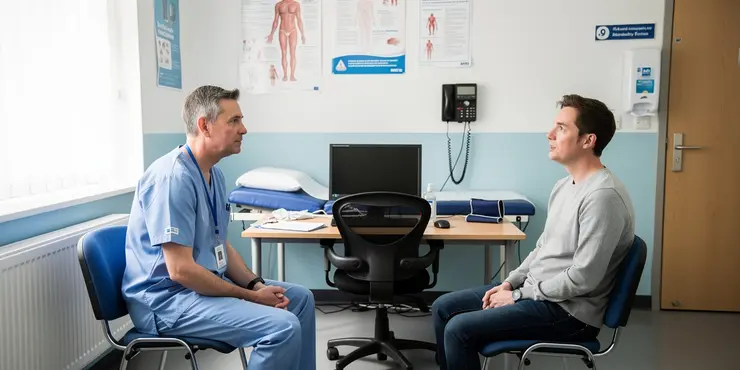
What should I do if I'm considering aspirin for cancer prevention?
Relevance: 63%
-
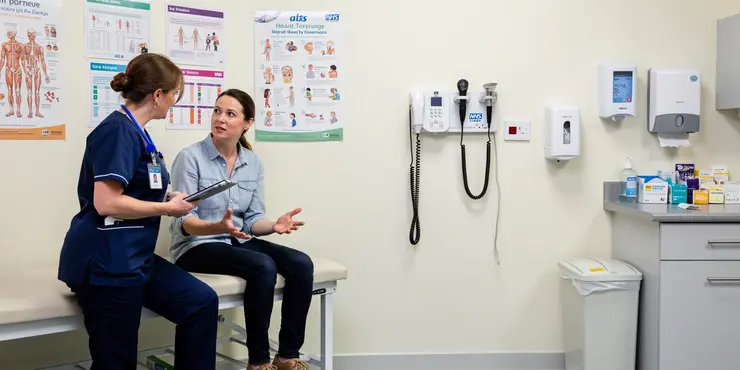
What dosage of aspirin is considered effective for cancer prevention?
Relevance: 62%
-

What is colorectal cancer?
Relevance: 55%
-
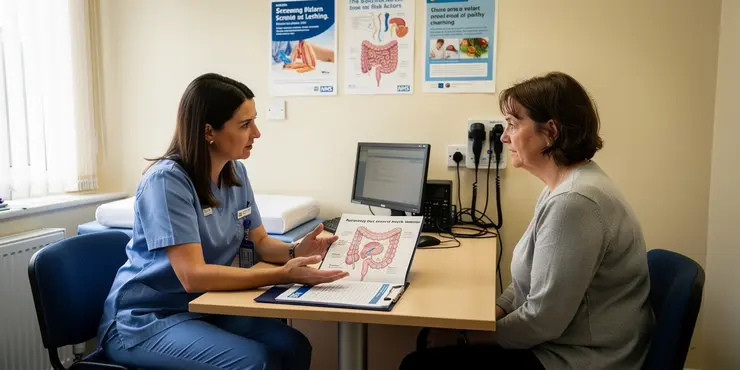
What factors increase my risk of colorectal cancer?
Relevance: 52%
-
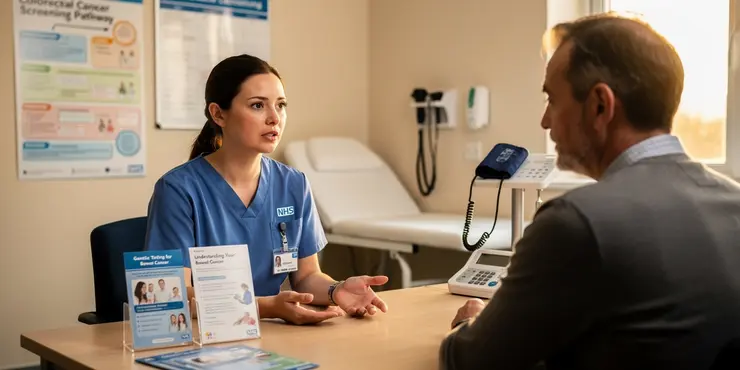
Is genetic testing available for colorectal cancer?
Relevance: 51%
-

What are the recommendations for colorectal cancer screening?
Relevance: 50%
-
Are there risks associated with home colorectal cancer tests?
Relevance: 49%
-
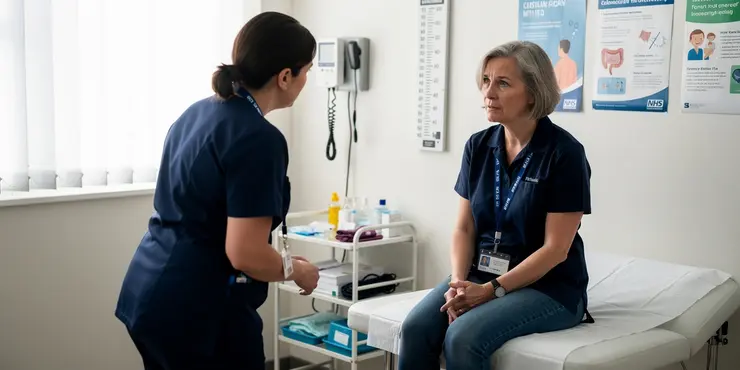
How can I test myself for colorectal cancer?
Relevance: 49%
-
Can lifestyle changes also help prevent colorectal cancer?
Relevance: 48%
-
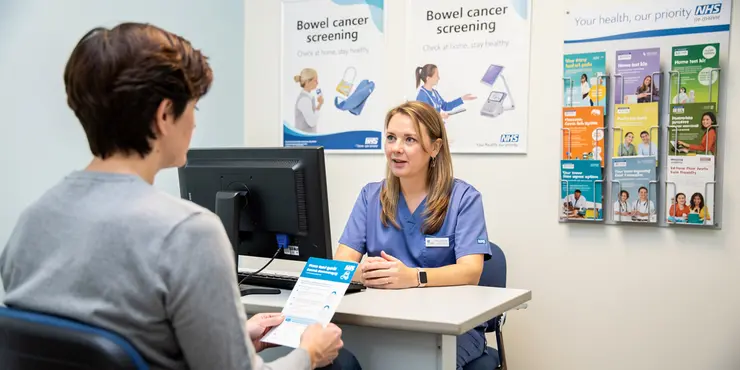
Will insurance cover the cost of home colorectal cancer tests?
Relevance: 48%
-
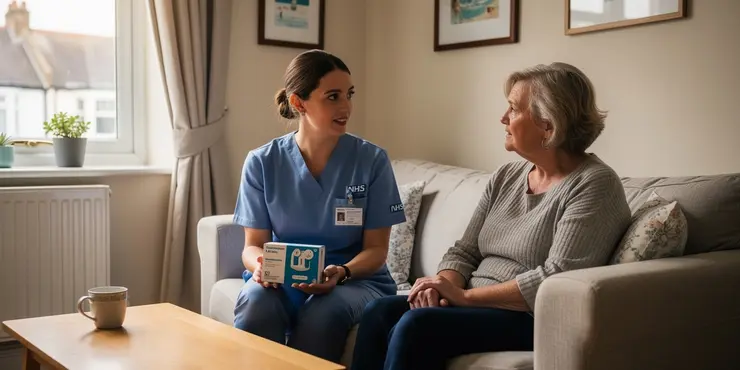
What are the advantages of an at-home colorectal cancer test?
Relevance: 48%
-
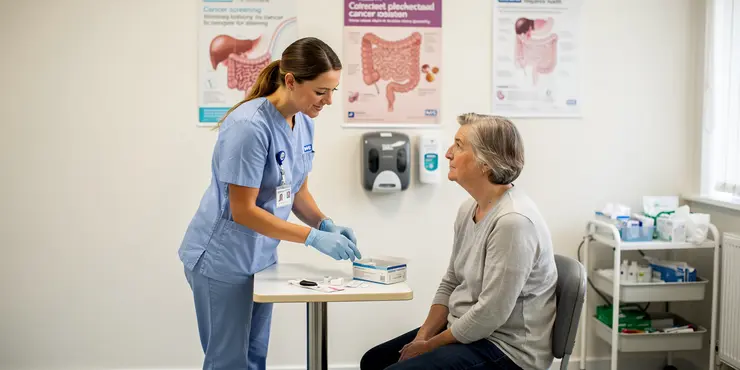
Can home colorectal cancer tests replace a colonoscopy?
Relevance: 48%
-

How often should I perform a home colorectal cancer test?
Relevance: 46%
-
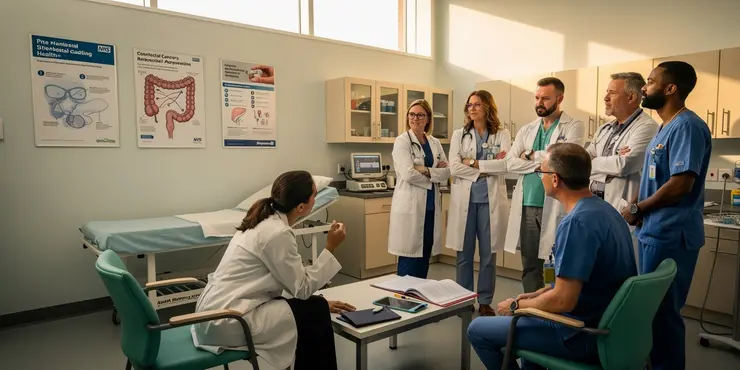
Do all studies agree on aspirin's effectiveness in preventing colorectal cancer?
Relevance: 44%
-
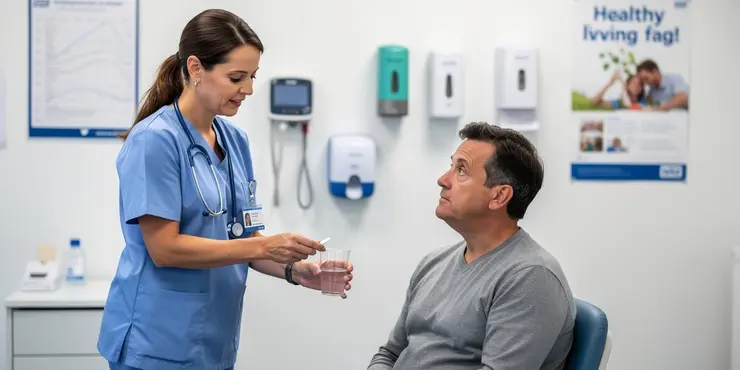
What is Aspirin?
Relevance: 37%
-

Are home tests for colorectal cancer accurate?
Relevance: 36%
-
Can aspirin interact with other medications?
Relevance: 35%
-
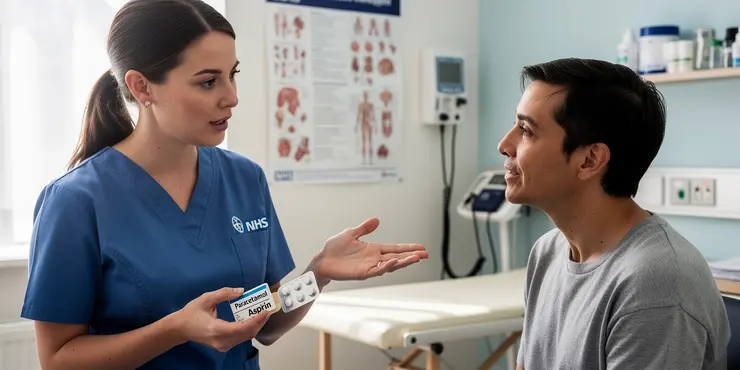
Is Paracetamol the same as Aspirin?
Relevance: 35%
-

Can lifestyle factors influence the results of a colorectal cancer test?
Relevance: 35%
-

Are Aspirin and Ibuprofen the same?
Relevance: 34%
-
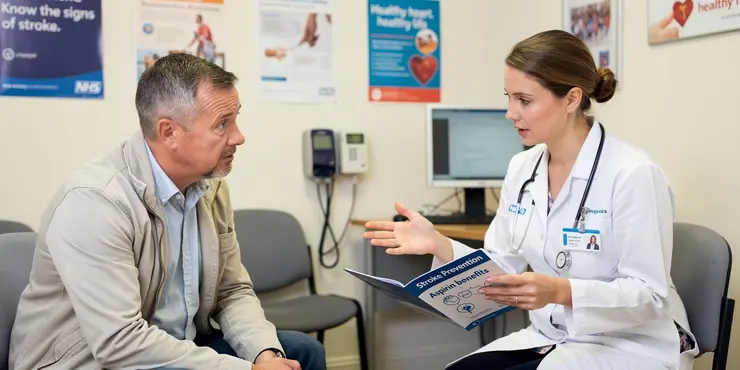
Can aspirin help in reducing the risk of strokes?
Relevance: 34%
-

What are the side effects of Aspirin?
Relevance: 34%
-
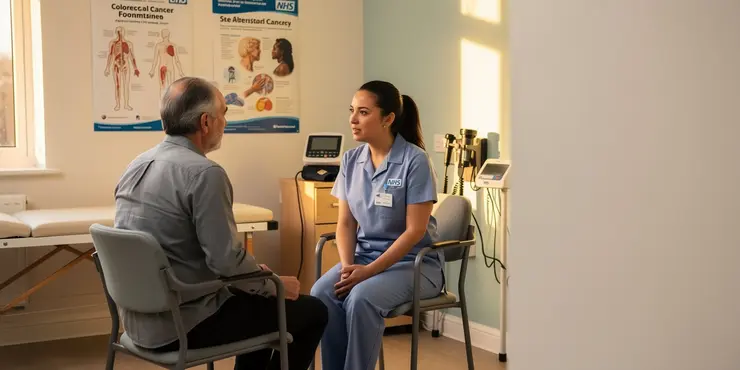
What alternative methods exist to screen for colorectal cancer?
Relevance: 33%
-
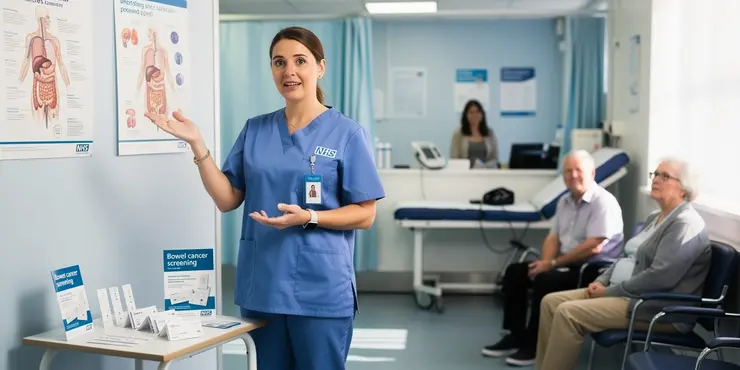
What are the main methods for testing yourself for colorectal cancer?
Relevance: 32%
-
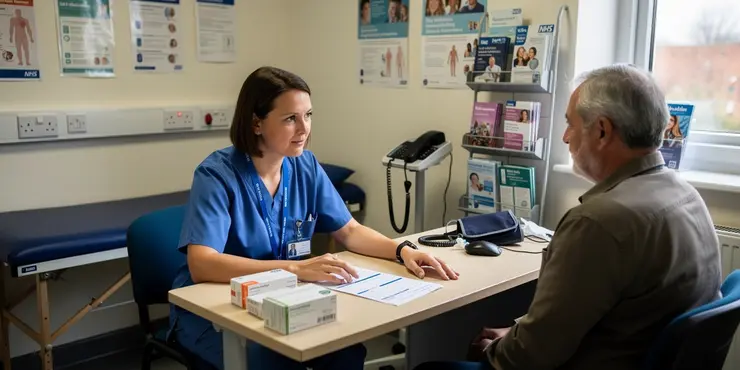
Can I take Aspirin and Ibuprofen together?
Relevance: 32%
-
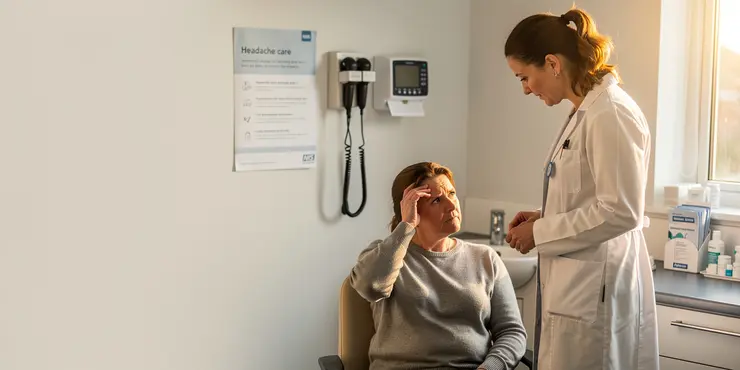
Which one is better for headaches: Aspirin or Paracetamol?
Relevance: 31%
-

At what age should I start testing myself for colorectal cancer?
Relevance: 31%
-
Should individuals with certain medical conditions avoid aspirin?
Relevance: 31%
Ongoing Research on Aspirin and Colorectal Cancer
In recent years, there has been significant interest in the potential role of aspirin in preventing colorectal cancer. Colorectal cancer is one of the most common types of cancer in the UK, affecting thousands of individuals each year. Aspirin, a widely used medication for pain relief and cardiovascular protection, has been the focus of numerous studies examining its impact on cancer prevention and progression.
The Potential Benefits of Aspirin
Aspirin is known to have anti-inflammatory properties, which is why it has been hypothesized to lower the risk of cancer development. Inflammation is a well-known factor in cancer progression, and by reducing inflammation, aspirin might help inhibit the growth of cancer cells. Several observational studies have suggested that individuals who take low-dose aspirin regularly may have a reduced risk of developing colorectal cancer.
Current Studies in the UK and Worldwide
As of 2023, multiple clinical trials and observational studies are underway globally, including in the UK, to further explore the link between aspirin and colorectal cancer. These studies aim to provide more definitive evidence regarding the dosage, duration, and population subsets that might benefit most from aspirin use. Researchers are investigating whether aspirin can be used as a preventive measure in high-risk groups or as part of the treatment regime for those already diagnosed with colorectal cancer.
Challenges and Considerations
While the potential benefits of aspirin in colorectal cancer prevention are promising, there are challenges and risks associated with its use. Long-term aspirin use can lead to side effects such as gastrointestinal bleeding and increased risk of hemorrhagic stroke. Thus, it is essential for researchers to balance the risks and benefits when recommending aspirin as a preventive strategy.
Recommendations for Patients
For individuals interested in using aspirin to potentially lower their cancer risk, it is crucial to consult with healthcare professionals. Doctors can help assess personal risk factors and provide guidance based on the latest research findings. It is not advisable for individuals to start an aspirin regimen without medical supervision, given the potential for adverse effects.
Conclusion
Ongoing studies are expected to shed more light on the relationship between aspirin and colorectal cancer. With further evidence, healthcare professionals may be able to more accurately tailor recommendations for aspirin use in cancer prevention. Patients and the public should remain informed and discuss any preventive measures with their healthcare providers.
Research on Aspirin and Colorectal Cancer
Doctors are studying how aspirin might help stop colorectal cancer. This type of cancer is one of the most common in the UK. Many people get it each year. Aspirin is a medicine used to help with pain and heart health. It is being studied to see if it can stop or slow down cancer.
How Aspirin Might Help
Aspirin can help reduce swelling in the body. Swelling can make cancer worse. By reducing swelling, aspirin might stop cancer from growing. Some studies say that taking a small dose of aspirin regularly might lower the chance of getting colorectal cancer.
Studies in the UK and Around the World
In 2023, many studies are looking at aspirin and colorectal cancer. These studies are trying to find out how much aspirin and for how long people need to take it. They are also finding out who will benefit the most. Researchers want to know if aspirin can help people who have a high chance of getting cancer or who already have it.
Challenges and Things to Think About
Aspirin might help with cancer, but there are some risks. Taking aspirin for a long time can cause problems like stomach bleeding. It can also make you more likely to have a stroke where bleeding happens in the brain. So, researchers must carefully weigh the good and bad effects before telling people to take aspirin.
Advice for People
If you want to use aspirin to try to lower your cancer risk, talk to your doctor. Doctors can check your health and tell you what is best for you. Do not start taking aspirin on your own because it can have side effects.
Conclusion
Studies are still going on to understand how aspirin and colorectal cancer are related. More research will help doctors give better advice about using aspirin to prevent cancer. It is important to stay informed and talk to your doctor about any health choices.
Frequently Asked Questions
Useful Links
This website offers general information and is not a substitute for professional advice.
Always seek guidance from qualified professionals.
If you have any medical concerns or need urgent help, contact a healthcare professional or emergency services immediately.
Some of this content was generated with AI assistance. We’ve done our best to keep it accurate, helpful, and human-friendly.
- Ergsy carfully checks the information in the videos we provide here.
- Videos shown by Youtube after a video has completed, have NOT been reviewed by ERGSY.
- To view, click the arrow in centre of video.
- Most of the videos you find here will have subtitles and/or closed captions available.
- You may need to turn these on, and choose your preferred language.
- Go to the video you'd like to watch.
- If closed captions (CC) are available, settings will be visible on the bottom right of the video player.
- To turn on Captions, click settings .
- To turn off Captions, click settings again.
More Items From Ergsy search
-
Are there ongoing studies about aspirin and colorectal cancer?
Relevance: 100%
-

Can aspirin stop colorectal cancer?
Relevance: 94%
-

Has aspirin been proven to cure colorectal cancer?
Relevance: 90%
-

Is aspirin recommended for everyone to prevent colorectal cancer?
Relevance: 87%
-
Is aspirin more effective for certain age groups in preventing colorectal cancer?
Relevance: 82%
-

Should people with a family history of colorectal cancer take aspirin?
Relevance: 80%
-
How long do studies suggest taking aspirin for cancer prevention?
Relevance: 80%
-
Is aspirin effective in preventing other types of cancer?
Relevance: 75%
-
Has the FDA approved aspirin for cancer prevention?
Relevance: 69%
-

How does aspirin work to reduce cancer risk?
Relevance: 69%
-

What do health organizations say about aspirin and cancer prevention?
Relevance: 65%
-

Can aspirin prevent colorectal cancer?
Relevance: 64%
-

What should I do if I'm considering aspirin for cancer prevention?
Relevance: 63%
-

What dosage of aspirin is considered effective for cancer prevention?
Relevance: 62%
-

What is colorectal cancer?
Relevance: 55%
-

What factors increase my risk of colorectal cancer?
Relevance: 52%
-

Is genetic testing available for colorectal cancer?
Relevance: 51%
-

What are the recommendations for colorectal cancer screening?
Relevance: 50%
-
Are there risks associated with home colorectal cancer tests?
Relevance: 49%
-

How can I test myself for colorectal cancer?
Relevance: 49%
-
Can lifestyle changes also help prevent colorectal cancer?
Relevance: 48%
-

Will insurance cover the cost of home colorectal cancer tests?
Relevance: 48%
-

What are the advantages of an at-home colorectal cancer test?
Relevance: 48%
-

Can home colorectal cancer tests replace a colonoscopy?
Relevance: 48%
-

How often should I perform a home colorectal cancer test?
Relevance: 46%
-

Do all studies agree on aspirin's effectiveness in preventing colorectal cancer?
Relevance: 44%
-

What is Aspirin?
Relevance: 37%
-

Are home tests for colorectal cancer accurate?
Relevance: 36%
-
Can aspirin interact with other medications?
Relevance: 35%
-

Is Paracetamol the same as Aspirin?
Relevance: 35%
-

Can lifestyle factors influence the results of a colorectal cancer test?
Relevance: 35%
-

Are Aspirin and Ibuprofen the same?
Relevance: 34%
-

Can aspirin help in reducing the risk of strokes?
Relevance: 34%
-

What are the side effects of Aspirin?
Relevance: 34%
-

What alternative methods exist to screen for colorectal cancer?
Relevance: 33%
-

What are the main methods for testing yourself for colorectal cancer?
Relevance: 32%
-

Can I take Aspirin and Ibuprofen together?
Relevance: 32%
-

Which one is better for headaches: Aspirin or Paracetamol?
Relevance: 31%
-

At what age should I start testing myself for colorectal cancer?
Relevance: 31%
-
Should individuals with certain medical conditions avoid aspirin?
Relevance: 31%


